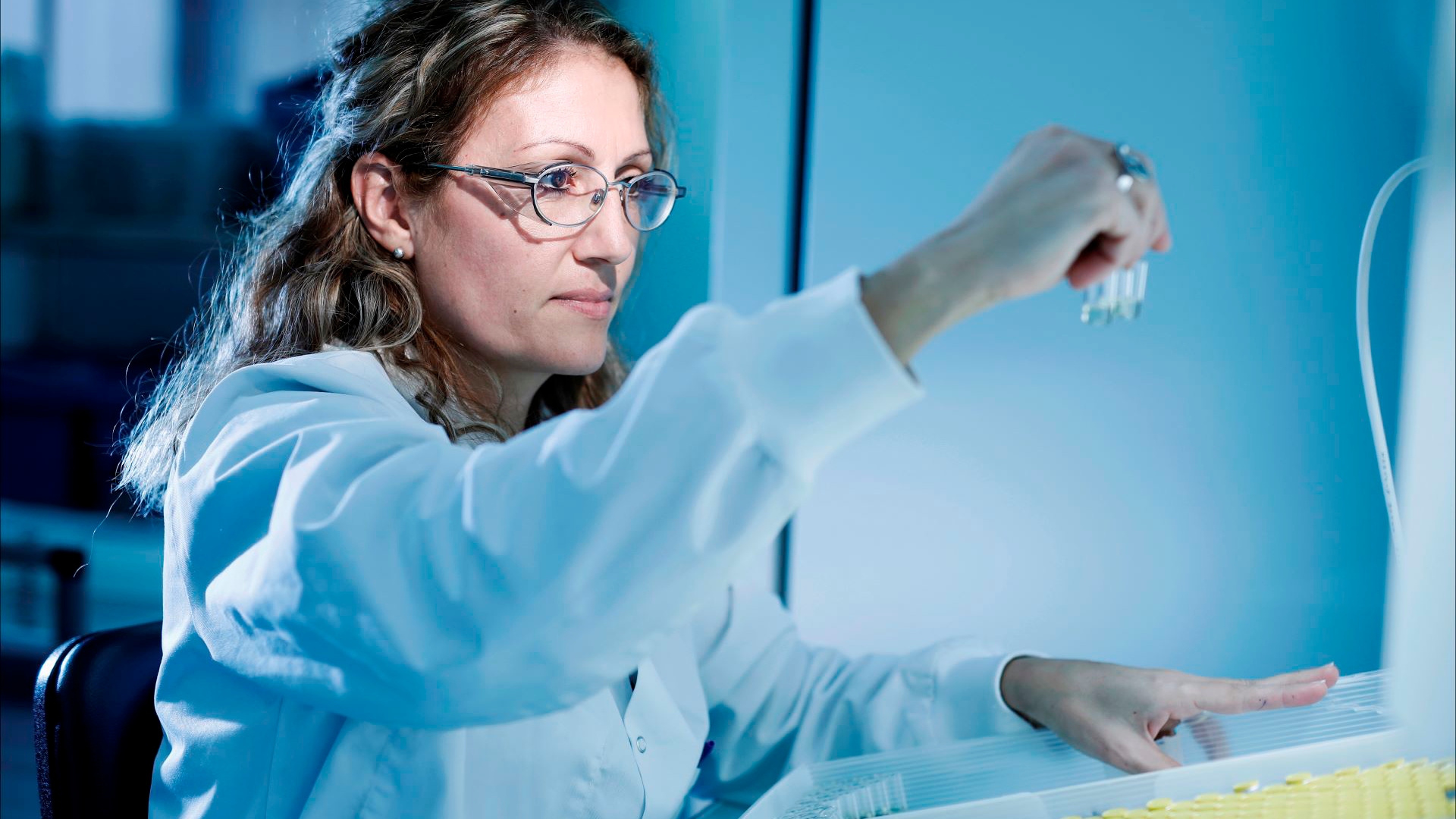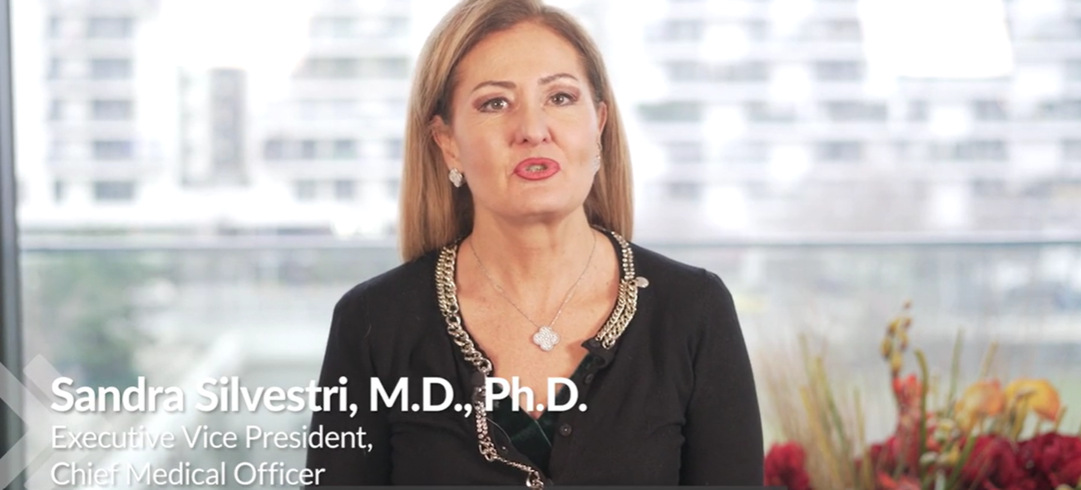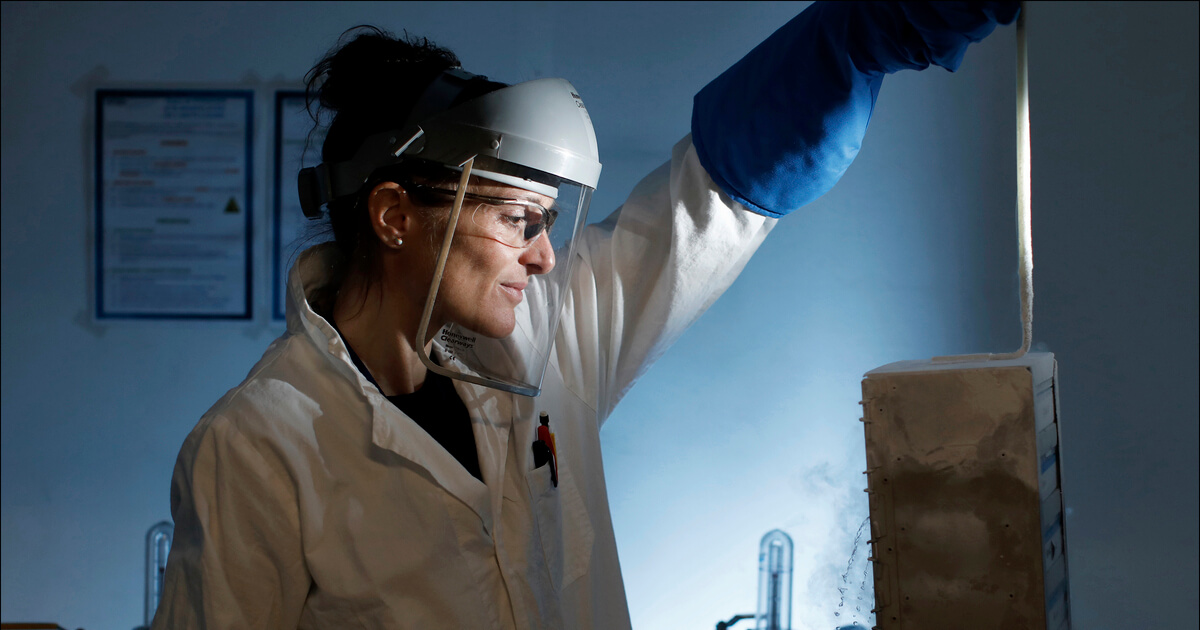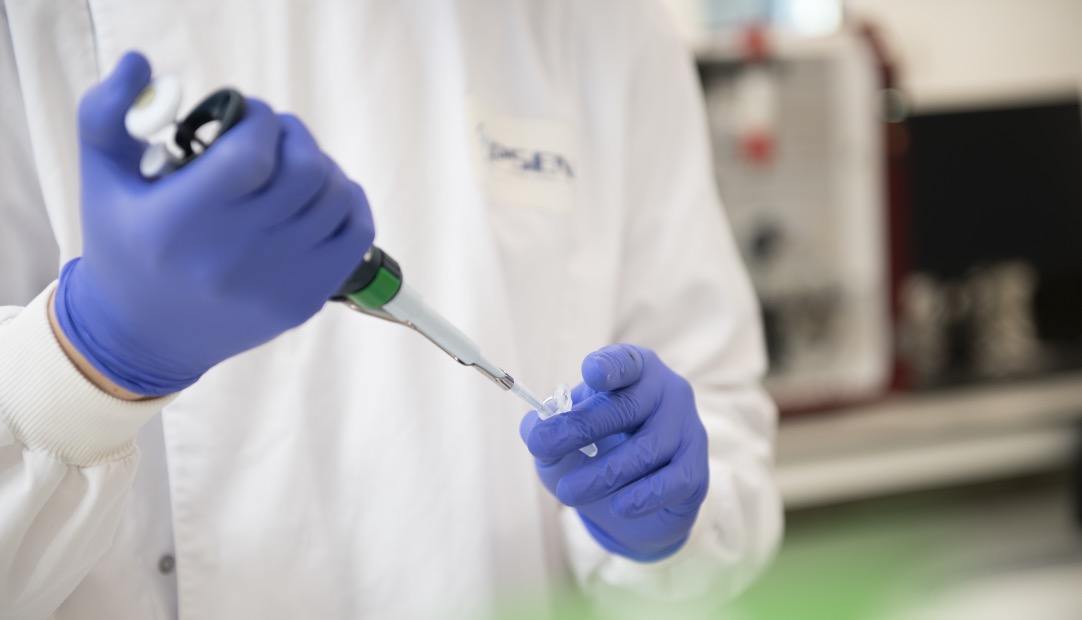At Ipsen we believe in advancing science with purpose. With our unique size and specialized expertise, we accelerate innovation navigating development and regulatory pathways to bring transformational new medicines to patients around the world.
We bring innovation where people have the fewest options

Oncology
Our purpose is to shape the future of cancer care – advancing bold science and pioneering novel treatments for complex tumors and rare cancers.
Through biomarker-driven approaches, we advance truly differentiated medicines, developing the right treatments for the right patients.

Rare disease
Our purpose is to uncover the science behind rare diseases, identifying well defined drug targets to develop medicines that modify the disease course & alleviate symptoms to improve daily life.
Executing translational science and accelerating innovation we deliver targeted therapies for complex conditions such as rare cholestatic liver diseases and bone disorders.

Neuroscience
Our purpose is to create transformative treatments that improve and extend benefits for people with debilitating conditions where options are limited.
Combining our expertise in toxins, our neuroscience heritage, and our unique biologics development capabilities, we drive innovation forward.
How Ipsen drives science with purpose

Ipsen’s science in ADCs
Achieving balance with precision
We are focused on maximizing the potential of the three key components of ADCs in solid tumors – the monoclonal antibody, the cytotoxic agent, and the linker.
Targeting tumor-specific antigens with innovative linker-payload designs and evaluating assets with a high DAR (drug-antibody ration) we aim to achieve strong anti-tumor activity across a number of solid tumors, while maintaining promising safety profiles.

Ipsen’s science in MAPK
We follow the science to better target the tumor
Our expert teams are exploring ways to more effectively block the MAPK pathway at multiple points, addressing challenges like pathway reactivation and resistance.
We aim to unlock the diversity of the MAPK pathway by targeting different proteins, across multiple solid tumor types, using biomarker-driven mutation identification to find the patients who will benefit most.
Through data-backed decision making and an unwavering commitment to treating some of the most challenging cancers, we aim to develop targeted therapies that improve patient outcomes.

Ipsen’s science in TCEs
Bringing science to cancer
With a data-driven approach, we are advancing multiple strategies to unlock new ways of engaging T cells, aiming to overcome challenges like dose-limiting toxicities and T cell exhaustion. Through biomarker-driven insights and next-generation platform designs, we are working to expand the potential of TCEs across a broad range of cancers, including ‘cold’ tumors that typically fail to trigger a strong immune response.
By leveraging breakthrough innovations – such as redirecting new and expanded pools of highly activated T cells – we aim to redefine how immunotherapies harness the immune system. Backed by science and an unwavering commitment to people facing some of the most difficult-to-treat cancers, we are driving the development of more precise, effective, and safer treatments for those who need them most.

Ipsen’s science in rare cholestatic liver disease
Using science to restore balance
Our focus is on expanding therapeutic possibilities for rare liver diseases where current options remain limited.
We are focused on five rare liver diseases: ALGS, BA, PBC, PFIC, and PSC, and aim to restore bile balance through modulating three different receptors involved in the bile acid system to relieve debilitating symptoms and improve long-term liver health.
IBAT and ASBT inhibitors reduce bile acid reabsorption in the intestine, lowering toxic bile buildup that contributes to pruritus and liver damage. PPAR agonists activate receptors in liver cells to regulate bile acid metabolism, reduce inflammation, and help protect against disease progression.
Our commitment extends beyond symptom relief – we strive to drive breakthroughs that reshape the future of treatment and redefine what’s possible for people with rare liver diseases.
Glossary
Defining some key terms in our science stories
Antibody-drug conjugates (ADCs) are a class of targeted cancer therapies that combine the precision of monoclonal antibodies with the potent cell-killing ability of cytotoxic drugs.
Designed to selectively deliver chemotherapy agents to cancer cells while sparing healthy tissues, ADCs help minimize side effects and improve treatment efficacy. Despite their advancements, many ADCs face challenges in balancing effectiveness with a manageable safety profile.
An agonist is a drug or molecule that activates a receptor in the body, triggering a response.
An antibody binds to a specific antigen, typically a disease-related protein like a cancer marker – working like a lock and key. A monoclonal antibody is an engineered antibody designed for therapeutic use.
If a pathway or receptor plays a role in a disease, we can inhibit or block it to reduce its activity and achieve a therapeutic effect.
The MAPK cell pathway, also referred to as MAP-kinase, plays a key role in regulating cell growth, differentiation and proliferation. Mutations in the chain of proteins that make up the pathway can result in hyperactivation—the pathway gets stuck ‘on’.
Uncontrolled cell proliferation signals can result in oncogenesis, where healthy cells become transformed into cancer cells.
Despite their advancements, many ADCs face challenges in balancing effectiveness with a manageable safety profile.
A novel therapeutic approach that represents a distinct way of treating disease – it introduces a fundamentally different mechanism or treatment strategy than existing options.
The liver plays a vital role in overall health, including bile production, which aids digestion and waste removal. Bile flows through a network of ducts to the small intestine or is stored in the gallbladder. Most bile acids are then reabsorbed and returned to the liver, maintaining the body’s bile acid balance.
Rare cholestatic liver diseases (‘cholestasis’ means impaired bile flow) occur when the balance is disrupted, leading to bile acid accumulation, toxicity, intense itching (pruritus), and liver damage. This can stem from genetic mutations, autoimmune responses, or structural abnormalities, shaping their progression in both pediatric and adult patients. Our focus is on five rare liver diseases: ALGS, BA, PBC, PFIC, and PSC.
A molecule inside or on a cell that detects signals from the body or drugs, triggering a specific response.
Therapies can guide drugs directly to diseased cells or enhance the body’s own immune response.
T cell engagers (TCEs) are a class of immunotherapy designed to harness the immune system – specifically T cells – to recognize and destroy cancer cells.
These engineered antibodies act as molecular bridges, binding to a tumor-associated antigen on cancer cells and a T cell protein, triggering a targeted immune attack. Once activated, T cells release cytotoxic enzymes, leading to cancer cell death and amplifying the body’s immune response.
TCEs offer a versatile and potent approach to cancer treatment, yet existing therapies face challenges such as treatment resistance and off-target effects.

OUR PARTNERSHIPS
At Ipsen, we believe that partnerships create possibilities. We seek to build partnerships that boost our capacity to improve or extend the lives of people living with cancer, rare diseases and neurological conditions.
Learn more
CLINICAL TRIALS
Ipsen conducts first-in-the-world clinical trials to take science forward and bring innovative, new options to patients. Our global network of healthcare professionals, together with volunteers and patients, helps us test medicines and ensure their effectiveness and safety in clinical trials before new treatments can be approved and made widely available.
Learn more








